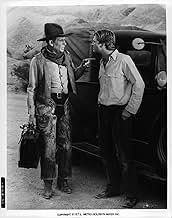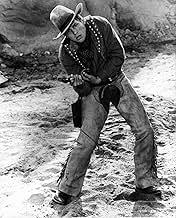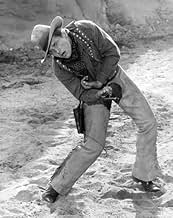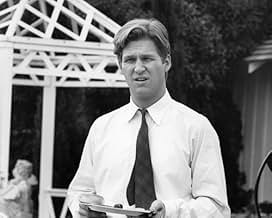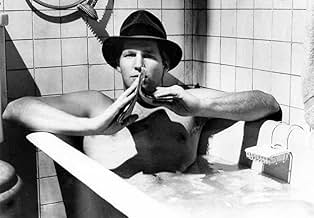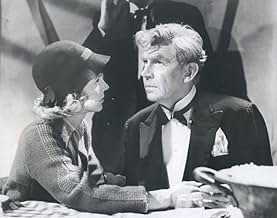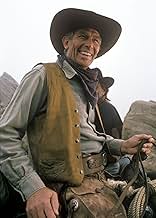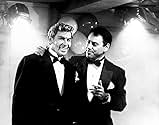The plot is a little loose-limbed and meandering but it's an affectionate and amusing look at Povery Row studios, also known as Gower Gulch, that ground out cheap Western movies to be shown as second features. If you've seen a John Wayne Western from the 1930s you'll know what they look like. Wayne, on a white horse, racing after a pick up truck, dashing past the telephone poles, in the Old West.
Jeff Bridges is Lewis Tater, an aspiring writer of Western stories who comes to Hollywood from Iowa armed with a diploma from a phony writing correspondence school. Throughout the movie he is pursued by two villains connected with the scam who want money from him.
Meanwhile, nearly broke, he manages to stumble into a role as an extra in these cheap Westerns made by a studio -- Shoot 'Em Up Productions, or something -- that is run by the penny-pinching Alan Arkin, who gives a splendid performance. Bridges is adequate as the kid consumed by his fantasies. Blythe Danner, with her hoarse voice sometimes ending in a squeak, is skinny, sexy, and grounded. Andy Griffith is fine as the extra who acts as Bridges' mentor and who is later revealed as a fraud who tries to steal the manuscript of Bridges' Western novel.
Except for the two stereotypical villains -- Richard Schull and Anthony James -- who are mostly comic figures, it's hard to dislike any character in this fey atmosphere. It's 1933 and the location shooting and set dressing make Los Angeles far more attractive than it is today, now that it is a tangled snare of freeways with colorless settlements in between them. The musical score uses a lot of source music -- cheerfully and not in-your-face obvious. The sun seems to be shining all the way through, even when it's raining. It's charming when the disingenuous Bridges stands on the beach of a rich producer's house, gazes Westward, and remarks in awe to himself -- "The vast Pacific."


